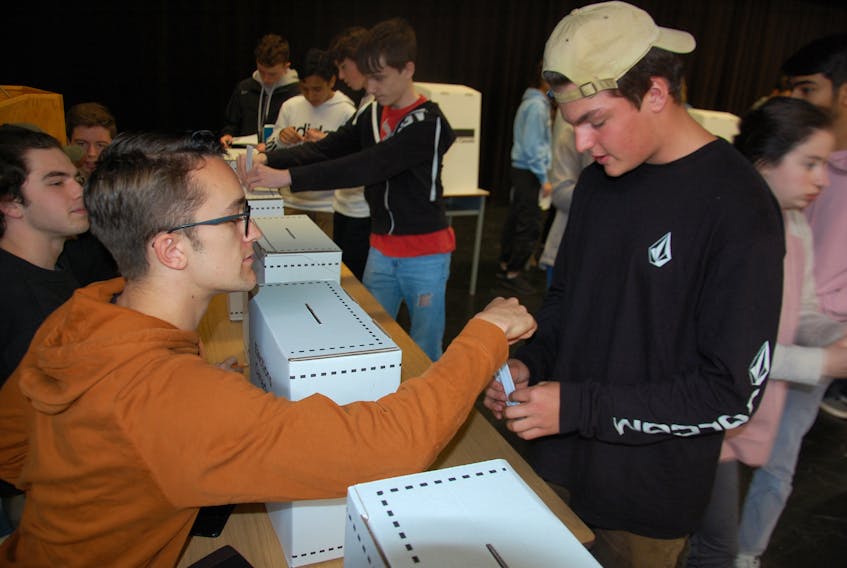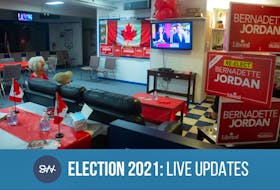Nathaniel Ing would prefer to cast a real vote in this federal election.
The 17-year-old Charlottetown Rural High School student is among the more than one million elementary, intermediate and secondary-level students under the voting age casting ballots in mock elections throughout Canada.
His vote will not count. Neither will the others. Still, he sees the exercise as a valuable experience.
“I think it instills within the students how important it is to vote and if they get used to it now, they’re more likely to do it later,’’ he says.
Ing has paid close attention in his political science class to discussion on the policies and platforms of the different federal parties.
“For me, climate change of course is a huge issue,’’ he says.
“That’s definitely something I’ve been thinking about . . . I just think that Canada as a global leader needs to take a stance (on climate change) because this is a very global issue and it is an emergency.’’
Reece Hunter, also 17 and like Nathaniel was manning a ballot box during Charlottetown Rural’s mock election Friday, is looking forward to having his voice heard when he is old enough to vote.
He believes the legal age should be lowered to 16.
Since 1970, all Canadian citizens who were over the age of 18 have been allowed to vote in upcoming Canadian elections. Some say having the voting age limited at 18 cuts off an important generation of voters who are concerned about their futures.
Since 16 year olds often already have the ability to work — and pay taxes — they argue it should only be fair for them to be able to vote on where their taxes go.
Flora MacLeod, a political science teacher at Charlottetown Rural, says lowering the legal voting age in Canada to 16 makes sense.
“Especially now with climate change being THE issue,’’ she says.
“It’s connected to every other issue and it’s of vital importance. And they’re (16 year olds) very keenly aware of what their future might look like and it’s scary to them. It’s a stress, without question.’’
MacLeod believes the mock election is great preparation.
“All the researchers say that if students are engaged in this process – the student vote or mock elections – then they are more likely to practice that beyond high school, which is the goal to get people engaged in democracy,’’ she says.
CIVIX, the organization behind the Student Vote mock election program, says this is the largest student parallel election held in Canada and possibly the biggest in the world.
More than 9,500 schools have registered to participate, representing all 338 ridings.
“We sincerely thank the teachers who are making the time to engage their students in the democratic process with the Student Vote program,’’ says CIVIX president Taylor Gunn.
Students have been engaging in debate and discussion about the future of the country, researching party platforms, consuming news, evaluating the leaders, and posing questions to their local candidates.
The Student Vote results are tabulated by riding and will be released publicly following the close of polls, later this week.


